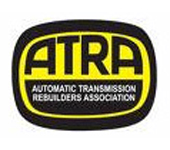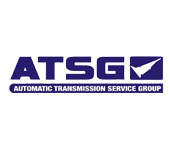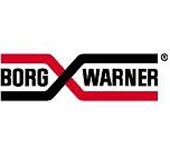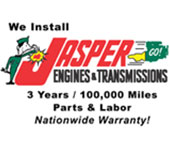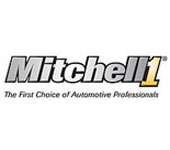817-446-7295 or 682-321-7117 | 2921 S Cooper St #101 Arlington, TX 76015
AUTONET TV
Archive for October 2024Timing is Everything (Timing Cover Replacement)Posted October 27, 2024 3:09 AMThere’s an important part in your vehicle that shields your timing belt, timing chain or cam belt from the debris and gunk that can be kicked up from the road. It’s called the timing cover. It’s important because the timing belt or chain is what coordinates parts of your engine called the camshafts and crankshaft. When they’re in sync, all runs smoothly. When they’re not, it can cause some serious engine problems. If your vehicle has a timing belt, without the protection of the timing cover, that belt can come loose from the timing gears or break. If your vehicle has a timing chain, the cover keeps engine oil circulating around it which lubricates it. When that starts to leak because of a bad gasket, the chain may not be getting adequate lubrication. If your vehicle has a timing cover problem, you may notice engine oil leaking if a gasket is not sealing tightly. You may hear a strange metallic sound coming from the engine. Another sign that timing is off is that you notice you’re losing power when you’re going up a hill. Usually, the timing cover will not wear out. But if you drive on roads where you’re getting a lot of debris and dirt kicked up into your engine compartment, the timing cover can get damaged and affect your vehicle’s operation. It eventually could lead to engine problems, so if you notice any of the symptoms mentioned, have one of our technicians inspect your timing cover and gasket. Westmoreland Transmissions Why did my vehicle fail its emissions test?Posted October 20, 2024 3:07 AMWe all want to breathe clean air and keep our planet green. One of the ways to do that is by requiring all vehicles with internal combustion engines to pass an emissions test. That’s because these vehicles can be big polluters. Everyone wants their car to pass the test so they can continue their day-to-day driving routine. But then comes that one day when they tell you your vehicle has failed. Why does that happen? One of the most common reasons is that your gas cap is leaking or loose (or maybe you don’t even have one on your vehicle!). The gas cap is supposed to seal in vapors, but sometimes its seals or gaskets dry out or crack. Replace it, and you’re good to go. Another common reason your vehicle failed the test is that your catalytic converter isn’t doing its job. It is supposed to convert toxic gases from your engine into ones that don’t pollute the air. There are many reasons the catalytic converter may not be working. It may be physically damaged, or the steady flow of exhaust gases has fouled the converter. You may have a bad oxygen sensor. It’s supposed to measure how much oxygen is in your exhaust. This can cause the air-fuel mixture to be too rich, resulting in too many hydrocarbons in the exhaust. Your ignition system may also have problems, such as worn-out spark plugs. Dirty fuel injectors can contribute to excess emissions. Believe it or not, a dirty engine air filter may be the culprit. If it hasn’t been replaced for a while, your vehicle may be emitting too many hydrocarbons - something that will cause your vehicle to fail the emissions test. You can usually avoid a failed emissions test by maintaining your vehicle regularly. The best way to do that is by bringing it to our trained technicians, so your vehicle gets the service it needs, scheduled and non-scheduled. Plus, you’ll be doing your part to keep our air clean. Westmoreland Transmissions Making Sense of the O2 Sensor (Oxygen Sensor Replacement)Posted October 13, 2024 3:10 AMAs you know, today’s vehicles rely on a lot of computers in them to keep them running clean and efficiently. Those computers depend on information delivered by several sensors throughout the engine and exhaust system. And one of the most important is the oxygen sensor. Known as the O2 sensor for short, it looks for too much unburned oxygen that has made it into the exhaust. That signals something isn’t right with the engine’s air-fuel mixture. The sensor sends signals to the engine’s computers, which can then make adjustments to make sure the engine is running as it was designed to. Some vehicles can have several O2 sensors, and since they can measure oxygen at various points in the combustion/exhaust process, the computers can pinpoint where the problems lie. For example, an O2 sensor can detect how much oxygen is coming out of the engine’s combustion chamber, and another one can measure oxygen coming out of the catalytic converter. As you can see, it’s important that those O2 sensors are working correctly. If they’re not, the computer is getting bad information. Garbage in, garbage out. That can result in lousy fuel economy and excess pollution coming out of your tailpipe. It can also affect your vehicle’s performance. Sometimes your Check Engine light will illuminate when one of your O2 sensors goes bad. Or you may notice your engine misfiring or idling roughly. If you notice any of these symptoms, bring your vehicle on in, and a technician will pinpoint the trouble spot. Westmoreland Transmissions Know Your Towing Limits in FORT WORTHPosted October 6, 2024 3:06 AMSome FORT WORTH drivers figure that anything they can attach to their trailer hitch can be towed by their vehicle. Nope. If you're going to do any towing around FORT WORTH, you should be aware of safety issues, TX towing laws and potential liability. Westmoreland Transmissions | ||
SearchArchiveApril 2018 (16)May 2018 (5) June 2018 (4) July 2018 (5) August 2018 (4) September 2018 (5) October 2018 (4) November 2018 (4) December 2018 (5) January 2019 (5) February 2019 (4) March 2019 (5) April 2019 (4) May 2019 (4) June 2019 (5) July 2019 (4) August 2019 (4) September 2019 (5) October 2019 (4) November 2019 (4) December 2019 (5) January 2020 (5) February 2020 (4) March 2020 (5) April 2020 (4) May 2020 (5) June 2020 (4) July 2020 (4) August 2020 (5) September 2020 (4) October 2020 (4) November 2020 (5) December 2020 (4) January 2021 (6) February 2021 (4) March 2021 (4) April 2021 (4) May 2021 (5) June 2021 (4) July 2021 (4) August 2021 (5) September 2021 (4) October 2021 (5) November 2021 (4) December 2021 (4) January 2022 (6) February 2022 (4) March 2022 (4) April 2022 (4) May 2022 (5) June 2022 (4) July 2022 (5) August 2022 (4) September 2022 (4) October 2022 (5) November 2022 (4) December 2022 (4) January 2023 (5) February 2023 (4) March 2023 (4) April 2023 (5) May 2023 (4) June 2023 (4) July 2023 (5) August 2023 (4) September 2023 (4) October 2023 (5) November 2023 (4) December 2023 (4) January 2024 (5) February 2024 (4) March 2024 (5) April 2024 (4) May 2024 (4) June 2024 (5) July 2024 (4) August 2024 (4) September 2024 (5) October 2024 (4) November 2024 (4) December 2024 (5) January 2025 (4) February 2025 (4) March 2025 (5) | CategoriesWhat Customers Should Know (40)Steering (7)Maintenance (8)Fuel Economy (4)Keys to a long lasting vehicle (2)Check Engine Light (2)Air Conditioning (8)Battery (8)Auto Safety (4)Tires and Wheels (2)Transmission (3)Alternator (2)Fuel Saving Tip: Slow Down (2)Shocks & Struts (3)Fluids (2)Automotive News (1)Winter Prep (2)Brakes (10)Older Vehicles (1)Cooling System (4)Service Intervals (1)Drive Train (2)Oil Change (5)Service Standards (1)Windshield Wipers (2)Headlamps (2)Winter Tires (1)Exhaust (5)Customer Detective Work (1)Fuel System (1)Tires (7)Alignment (3)Tire Rotation and Balancing (2)Transfer Case Service (1)Suspension (1)Safety (2)TPMS (1)Inspection (2)Timing Belt (2)Shocks and Struts (1)Brake Service (1)Spark Plugs (1) | |







